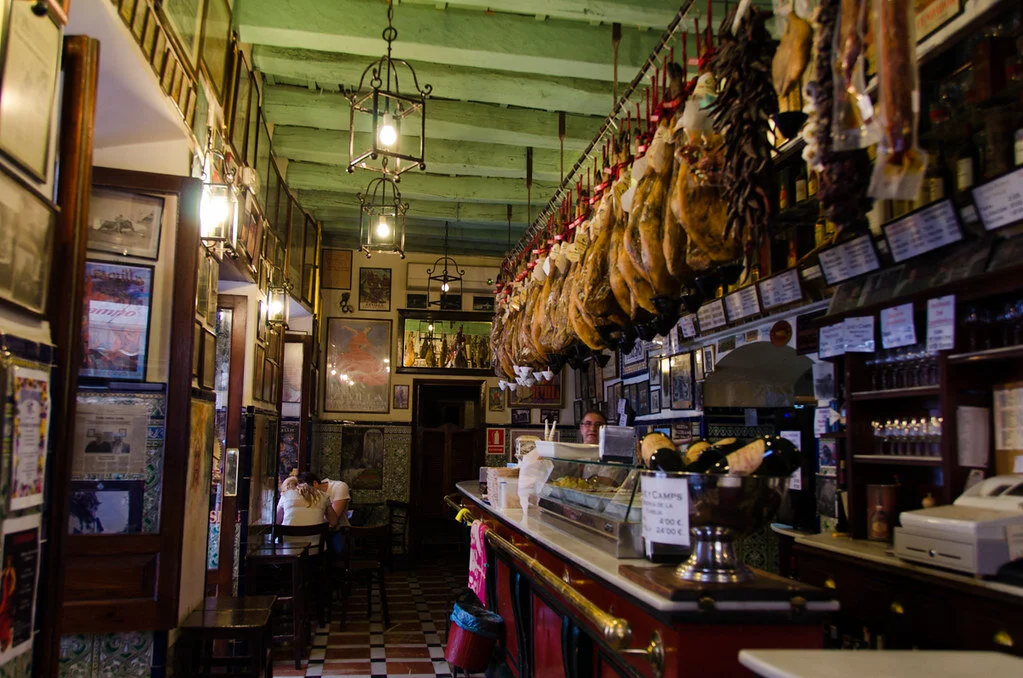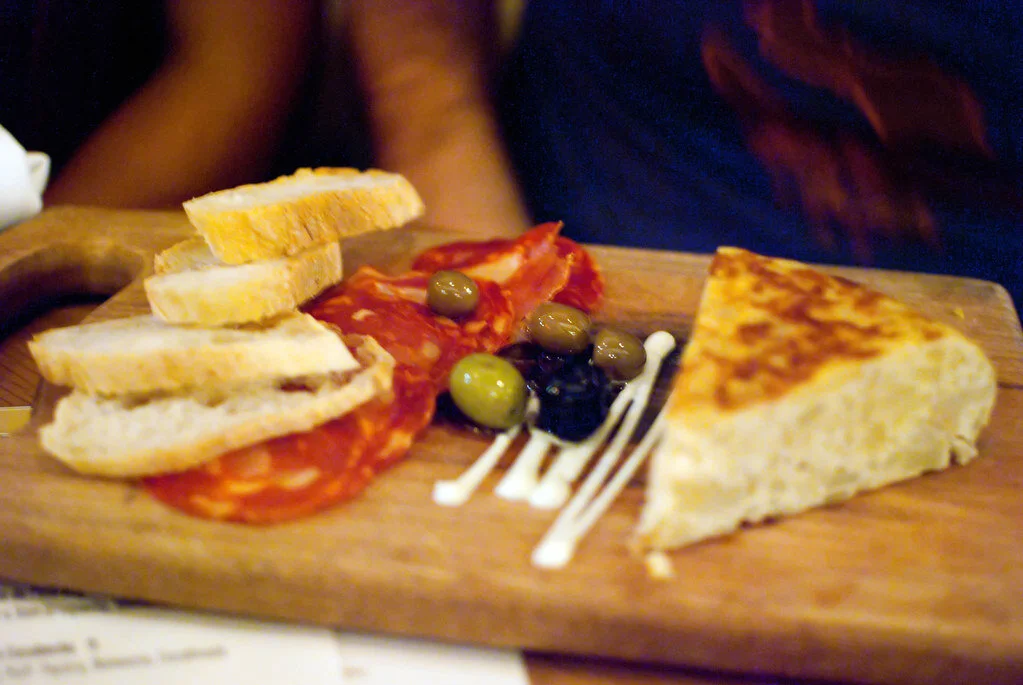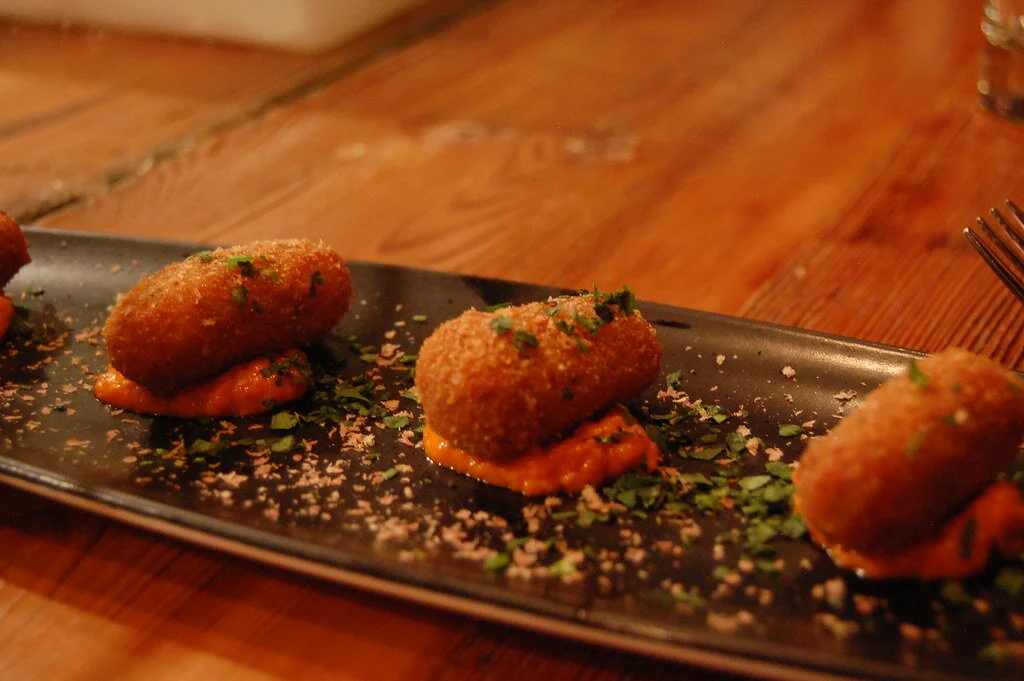Spanish tapas started as simple small plates to accompany a drink and are now an important part of Spain’s culture where people gather for food, drinks and socializing.
Bar Las Teresas in southern Spain. Vallausa. CC BY 2.0
Tapas bars are a long-held Spanish tradition that includes traditional food, wine, friends and a lively atmosphere. The small plates have been enjoyed at wine bars for generations, but the exact origin of tapas is unknown. There are several tales speculating how the dishes first gained popularity. One dates back to the 13th century when King Alfonso X of Castille was ill and only ate and drank in small quantities. Another story tells a more grassroots origin, with local bars in Andalucía serving wine with a saucer on top to keep flies out during the hot summer. In addition, a small amount of complimentary food would be placed on the plate to attract more customers to the bar. Even though there may be some disagreement over the origins of tapas, there is no doubt that the cuisine is a staple of Spanish food and culture. With increased tourism and popularity, most tapas are no longer free, although some wine bars still will serve complimentary tapas in smaller towns in Andalucía.
Tapas bars are typically small wine bars, with varying small plates placed on top of the bars. While many tapas may have started out as simple small plates, chefs have gotten increasingly inventive in creating new dishes over the years. Traditional cold tapas include serrano, thinly sliced salt-cured ham and manzanilla or gordal olives, classic Andalucía olives, along with a variety of salads. Seafood is prevelant, with calamari and prawns dipped in batter, called gambas gabardina, being just a few dishes offered at tapas bars. Other popular tapas include ham croquettes (a fried ball of cheese and ham), pincho de tortillas (a potato-based omelet) and patatas bravas (fried potatoes covered in sauce).
Tapas bar hopping is popular for people to socialize and enjoy traditional food. People can have tapas as a quick snack with a drink and can eat standing up at a bar, or turn the small plates into a complete meal with many people. Tapas hold so much cultural significance to Spain that in 2016 the country sought to put tapas on the UNESCO Intangible Cultural Heritage List. Tapas have now spread worldwide with chefs experimenting with small plates of all kinds. Despite the global reach, Spain’s beloved tapas bars are still a unique cultural experience.
RELATED CONTENT
Dana Flynn
Dana is a recent graduate from Tufts University with a degree in English. While at Tufts she enjoyed working on a campus literary magazine and reading as much as possible. Originally from the Pacific Northwest, she loves to explore and learn new things.








